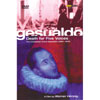Gesualdo - Death for Five Voices
On with the motley crew…a cut-price Herzog stumbles after Gesualdo
View record and artist detailsRecord and Artist Details
Composer or Director: Carlo (Prince of Venosa, Count of Conza) Gesualdo
Genre:
Chamber
Label: Arthaus Musik
Magazine Review Date: 4/2007
Media Format: Digital Versatile Disc
Media Runtime: 60
Mastering:
Stereo
Catalogue Number: 102 055

Tracks:
| Composition | Artist Credit |
|---|---|
| Death for Five Voices |
Carlo (Prince of Venosa,Count of Conza) Gesualdo, Composer
(Il) Complesso Barocco Carlo (Prince of Venosa,Count of Conza) Gesualdo, Composer Gesualdo Consort of London |
Author: Peter Quantrill
If it’s a chronicle of troubled egomaniacal genius you want, then Werner Herzog would appear to be the man for the job. Without the budget or ambition of Nosferatu or Fitzcarraldo, Gesualdo was made for German TV in 1995. Heaven only knows what Herzog actually wanted to do with the life and work of the Prince of Venosa; what we get is an hour-long film that would pass muster as a “making of” extra to a DVD of the real thing.
Scholars, cooks and handymen all pass in front of Herzog’s wobbly documentary camera with their own take on the composer’s lurid life and music, as we move between wrecked and well appointed palazzi on his manor. I like the man playing the Italian bagpipes: “I come here to play music into the cracks of the walls, to stop the evil spirit escaping. Whose spirit is it? Gesualdo’s.” He doesn’t actually ask himself the rhetorical question, the unseen interviewer does that, and Herzog, spurning subtitles, intones the whole exchange over the top in accented English. Bonkers. So is the juxtaposition of the two musical ensembles, both fine, but coming from completely different performing traditions which are reflected in the narrative personas of their directors, Gerald Place (English, controlled and a touch nervous) and Alan Curtis (the American director of Il Complesso Barocco, confident, conversational and relaxed). Completing this motley crew is a cameo from Berio’s favoured chanteuse, Milva, as “the reincarnation of Maria d’Avalos”, Gesualdo’s first wife, with a generous embonpoint and a tape recorder. Go in with low expectations and you won’t be disappointed.
Scholars, cooks and handymen all pass in front of Herzog’s wobbly documentary camera with their own take on the composer’s lurid life and music, as we move between wrecked and well appointed palazzi on his manor. I like the man playing the Italian bagpipes: “I come here to play music into the cracks of the walls, to stop the evil spirit escaping. Whose spirit is it? Gesualdo’s.” He doesn’t actually ask himself the rhetorical question, the unseen interviewer does that, and Herzog, spurning subtitles, intones the whole exchange over the top in accented English. Bonkers. So is the juxtaposition of the two musical ensembles, both fine, but coming from completely different performing traditions which are reflected in the narrative personas of their directors, Gerald Place (English, controlled and a touch nervous) and Alan Curtis (the American director of Il Complesso Barocco, confident, conversational and relaxed). Completing this motley crew is a cameo from Berio’s favoured chanteuse, Milva, as “the reincarnation of Maria d’Avalos”, Gesualdo’s first wife, with a generous embonpoint and a tape recorder. Go in with low expectations and you won’t be disappointed.
Discover the world's largest classical music catalogue with Presto Music.

Gramophone Digital Club
- Digital Edition
- Digital Archive
- Reviews Database
- Full website access
From £8.75 / month
Subscribe
Gramophone Full Club
- Print Edition
- Digital Edition
- Digital Archive
- Reviews Database
- Full website access
From £11.00 / month
Subscribe
If you are a library, university or other organisation that would be interested in an institutional subscription to Gramophone please click here for further information.




